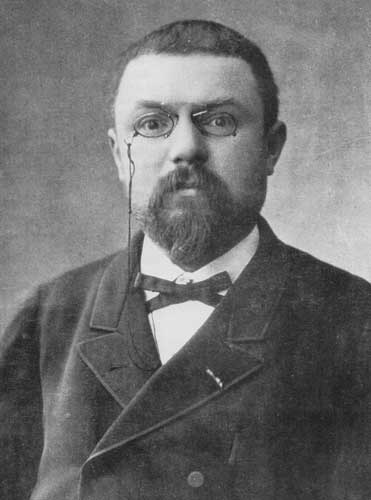Henri Poincaré citáty a výroky
Henri Poincaré: Citáty v angličtine
C'est même des hypothèses simples qu'il faut le plus se défier, parce que ce sont celles qui ont le plus de chances de passer inaperçues.
Thermodynamique: Leçons professées pendant le premier semestre 1888–1889 (1892), Preface
Si toutes les parties de l’univers sont solidaires dans une certaine mesure, un phénomène quelconque ne sera pas l’effet d’une cause unique, mais la résultante de causes infiniment nombreuses ; il est, dit-on souvent, la conséquence de l’état de l’univers un instant auparavant.
Zdroj: The Value of Science (1905), Ch. 2: The Measure of Time
Zdroj: Science and Hypothesis (1901), Ch. I. (1905) Tr. George Bruce Halstead
Si donc un phénomène comporte une explication mécanique complète, il en comportera une infinité d’autres qui rendront également bien compte de toutes les particularités révélées par l’expérience.
Zdroj: Science and Hypothesis (1901), Ch. XII: Optics and Electricity, as translated by George Bruce Halsted (1913)
Zdroj: The Value of Science (1905), Ch. 5: Analysis and Physics
C'est par la logique qu'on démontre, c'est par l'intuition qu'on invente.
Part II. Ch. 2 : Mathematical Definitions and Education, p. 129
Science and Method (1908)
... les traités de mécanique ne distinguent pas bien nettement ce qui est expérience, ce qui est raisonnement mathématique, ce qui est convention, ce qui est hypothèse.
Zdroj: Science and Hypothesis (1901), Ch. VI: The Classical Mechanics, Tr. George Bruce Halsted (1913)
Zdroj: The Value of Science (1905), Ch. 2: The Measure of Time
Zdroj: Science and Hypothesis (1901), Ch. IV: Space and Geometry, Conclusions (1905) Tr. https://books.google.com/books?id=5nQSAAAAYAAJ George Bruce Halstead
Il ne faut pas comparer la marche de la science aux transformations d’une ville, où les édifices vieillis sont impitoyablement jetés à bas pour faire place aux constructions nouvelles, mais à l’évolution continue des types zoologiques qui se développent sans cesse et finissent par devenir méconnaissables aux regards vulgaires, mais où un œil exercé retrouve toujours les traces du travail antérieur des siècles passés. Il ne faut donc pas croire que les théories démodées ont été stériles et vaines.
Introduction, p. 14
The Value of Science (1905)
La pensée ne doit jamais se soumettre, ni à un dogme, ni à un parti, ni à une passion, ni à un intérêt, ni à une idée préconçue, ni à quoi que ce soit, si ce n'est aux faits eux-mêmes, parce que, pour elle, se soumettre, ce serait cesser d'être.
Speech, University of Brussels (19 November 1909), during the festival for the 75th anniversary of the university's foundation; published in Œuvres de Henri Poincaré (1956), p. 152
Zdroj: Science and Hypothesis (1901), Ch. I. (1905) Tr. George Bruce Halstead
La logique nous apprend que sur tel ou tel chemin nous sommes sûrs de ne pas rencontrer d'obstacle ; elle ne nous dit pas quel est celui qui mène au but. Pour cela il faut voir le but de loin, et la faculté qui nous apprend à voir, c'est l'intuition. Sans elle, le géomètre serait comme un écrivain qui serait ferré sur la grammaire, mais qui n'aurait pas d'idées.
Part II. Ch. 2 : Mathematical Definitions and Education, p. 130
Science and Method (1908)
Zdroj: The Value of Science (1905), Ch. 11: Science and Reality
Cette harmonie que l’intelligence humaine croit découvrir dans la nature, existe-t-elle en dehors de cette intelligence ? Non, sans doute, une réalité complètement indépendante de l’esprit qui la conçoit, la voit ou la sent, c’est une impossibilité.
Introduction, p. 14
The Value of Science (1905)
Author's Essay Prefatory to the Translation: "The Choice of Facts," p.4
The Value of Science (1905)
C’est parce que la simplicité, parce que la grandeur est belle, que nous rechercherons de préférence les faits simples et les faits grandioses, que nous nous complairons tantôt à suivre la course gigantesque des astres, tantôt à scruter avec le microscope cette prodigieuse petitesse qui est aussi une grandeur, tantôt à rechercher dans les temps géologiques les traces d’un passé qui nous attire parce qu’il est lointain.
Part I. Ch. 1 : The Selection of Facts, p. 23
Science and Method (1908)
